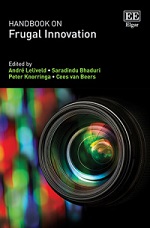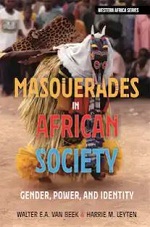New publications
New publications by ASCL staff and affiliates, and new books in our series, are frequently highlighted on this website. You may also use this RSS feed to keep informed. All recently added publications can be found in our database.
Jan-Bart Gewald
Post date: 23 January 2024
Abel Ezeoha, Anthony Igwe, Chinwe Okoyeuzu & Chibuike Uche
Post date: 22 January 2024
Jon Abbink
Post date: 19 January 2024
Jon Abbink
Post date: 18 January 2024
Rasenberg, Amha, Coler, van Koppen, van Miltenburg e.a.
Post date: 08 December 2023
Evaluating the ‘Pretoria Agreement’: the limitations of presentist analysis of conflicts in Ethiopia
Jan Abbink
Post date: 07 November 2023
Walter van Beek, Harrie Leyten
Post date: 06 November 2023
A. Leliveld, S. Bhaduri, P. Knorringa & C. van Beers
 This pioneering handbook details the origins of the concept of frugal innovation, its emergence as an academic field, and the main driving forces behind it. With case studies from across the globe, the book assesses the role of innovation in addressing societal challenges such as poverty, inequality, and climate change.
This pioneering handbook details the origins of the concept of frugal innovation, its emergence as an academic field, and the main driving forces behind it. With case studies from across the globe, the book assesses the role of innovation in addressing societal challenges such as poverty, inequality, and climate change.
Post date: 03 November 2023
Raia, A., Ngom, F., Kaag, M. & Kossman, M. (eds.)
Post date: 16 October 2023
Pages
Posted on 28 November 2016, last modified on 23 December 2016


